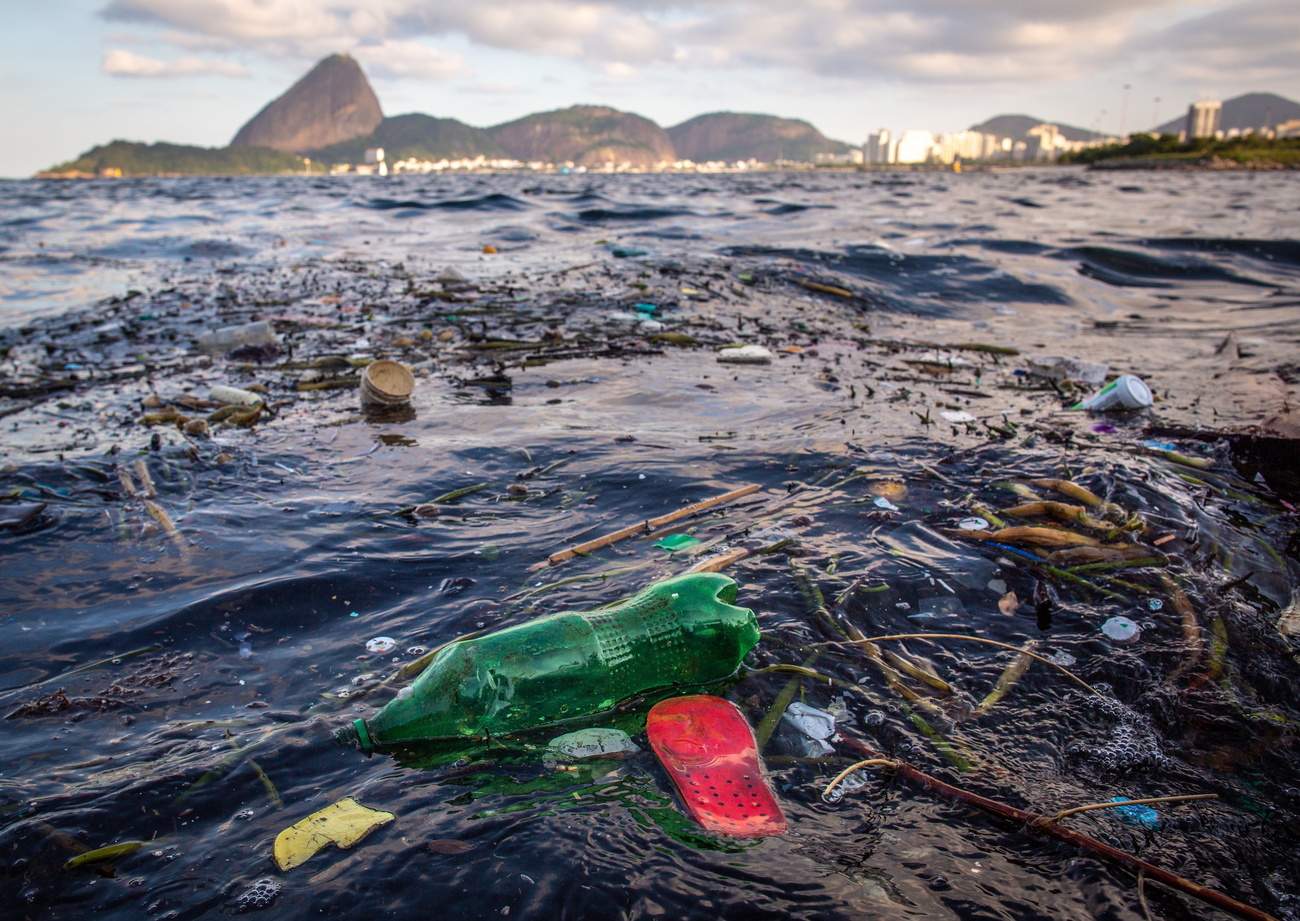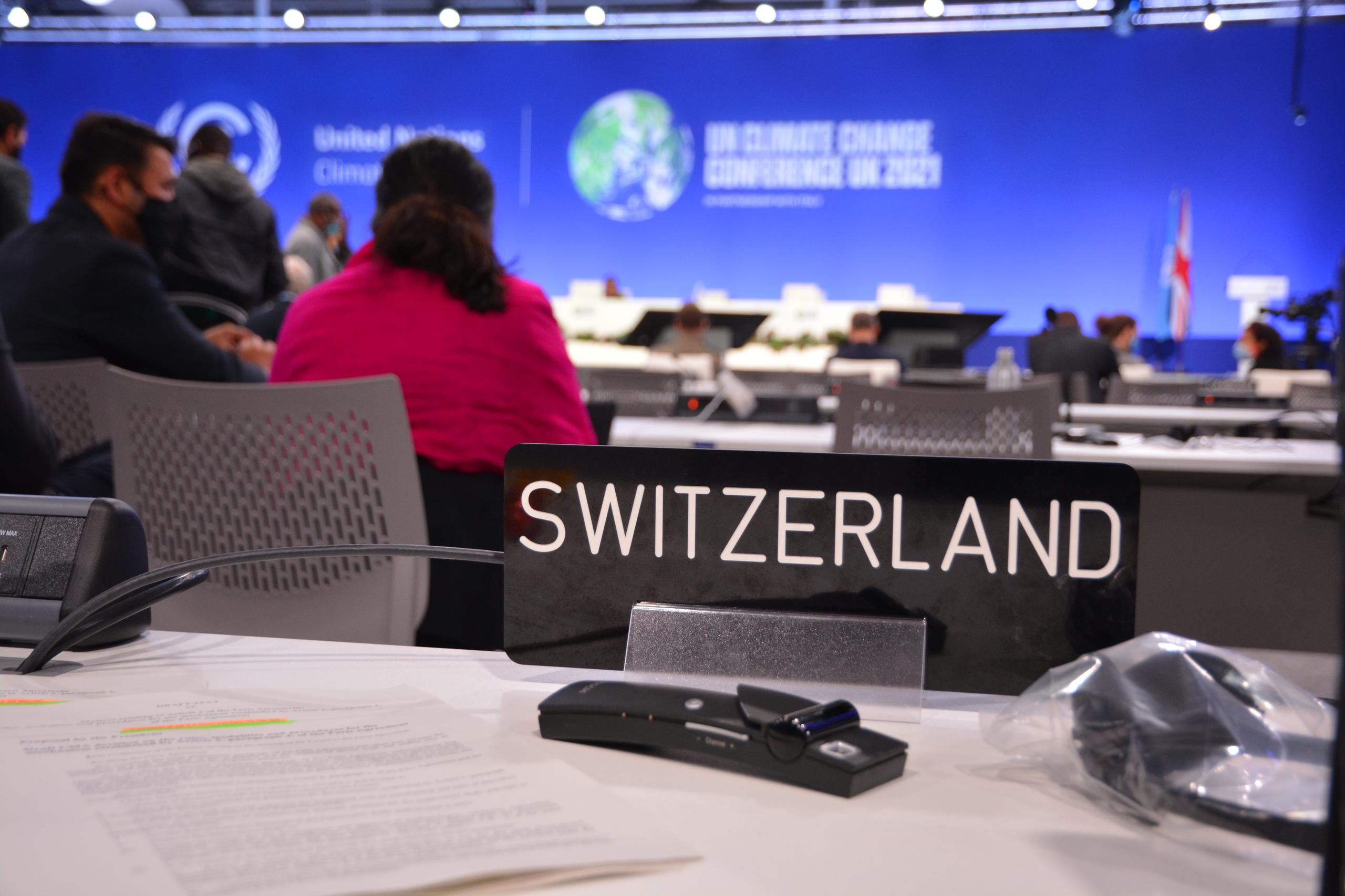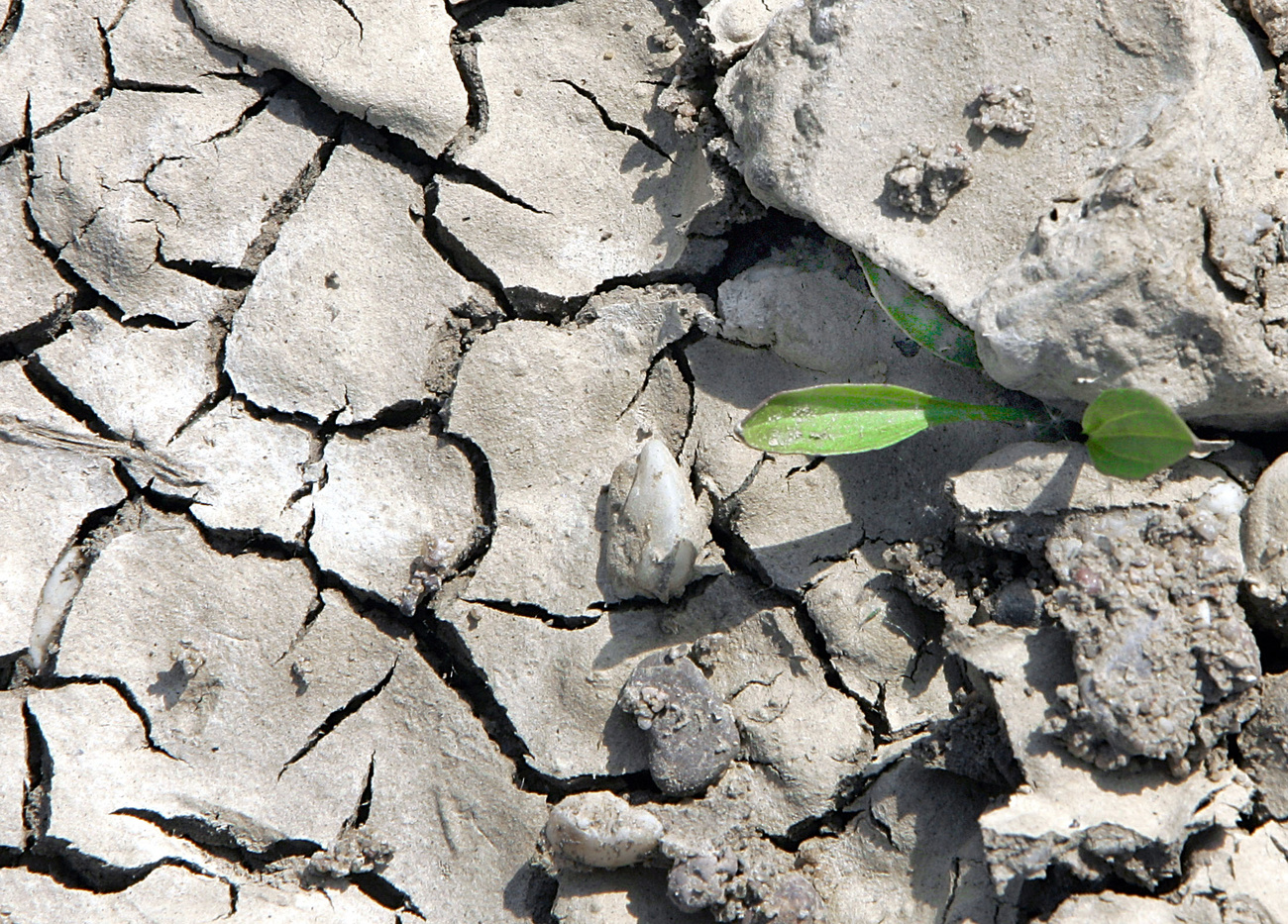Switzerland grapples with challenge of greening its banks

Financial companies, the government and regulators face a sizeable task in turning Switzerland into a sustainable finance hub, amid mounting scepticism from pressure groups.
The world’s leading wealth management centre has ambitions to replicate this status in green finance – channeling investments into climate-friendly projects via bonds, funds and other financial instruments.
A flurry of new initiatives has emerged in the wake of the COP26 climate summit. The organisation Swiss Sustainable Finance, comprising private and public sector actors, as well as academia and investors, has submitted a roadmap to reach the sustainable finance hub destination. This follows a set of recommendations from the Asset Management Association Switzerland.
On December 1, the Swiss government, along with UBS and Credit Suisse banks, launched a CHF1 billion ($1.08 billion) fund to invest in social and environmental projects in developing countries.
The government also wants to issue green bonds by the end of next year and is contemplating measures to combat bogus green financial products (greenwashing).
The NGO Greenpeace recently ran the rule over 51 Swiss and Luxembourg sustainable funds and found that there was “much to be desired”.
“The so-called sustainable investments that are currently on offer are not only barely sustainable, they even damage the climate,” Greenpeace statedExternal link.
Harmful investments
NGOs and pressure groups are wary of financial sector promises. They argue that before banks, insurance groups and pensions funds create a lucrative marketplace in sustainable finance, they should first clean up their own acts.
WWF has called the efforts of the Swiss National Bank (SNB) and the financial regulator “largely insufficient to combat the climate crisis and the loss of biodiversity”.
And the NGO Climate Alliance has accused the Swiss financial centre of contributing to the malnourishment and deaths of children worldwide through investments in fossil fuel projects.
More
“Words are not enough. We are confronted with huge greenwashing activities in the financial sector,” said Professor Marc Chesney, chair of Center of Competence for Sustainable Finance at the University of Zurich. “A financial sector which would be really green, should stop financing fossil fuel energies.”
According to Chesney, the current financial activities of big banks worldwide and of the Swiss National Bank (SNB), in terms of loans or investments respectively, correspond to an increase in global average temperature by the end of the century, which is significantly higher than the 1.5 to 2°C stipulated by the Paris climate agreement.
Even a Swiss environment ministry survey found that financial actors invested far more in fossil fuels than renewable energies, and may even be contributing to an expansion in the coal and oil production.
Low hanging fruit
Speaking at the Building Bridges sustainable finance conference, which ran from late November to early December in Geneva, Swiss private banker Patrick Odier urged banks to “walk the talk” on climate promises by at least picking off “low hanging fruit”, such as phasing out investments in coal production. He asked banks to deliver concrete plans to reduce their CO2 footprints but stopped short of calling for an end to all fossil fuel investments.
German consultancy group Zeb believes that banks face a threat to their very existence if they fail to exit climate harming investments. “If actors do not succeed quickly, comprehensive intervention by politicians and supervisors with corresponding regulations will likely not be far off,” said Zeb partner Dirk Holländer.
In Switzerland, this is unlikely to happen either this year or next – if ever. A government review of whether new financial laws are needed to enforce sustainable finance standards will only be completed towards the end of 2022.
Financial institutions are obliged to report their environmental risks to the Financial Market Supervisory Authority, but for the most part Switzerland is falling back on its tradition of trusting companies to self-regulate. “There is currently no compulsory regulation in Switzerland,” State Secretary for International Finance, Daniella Stoffel, told the Building Bridges conference. “We believe in the markets. It is each actors’ own choice if they want to be in the crowd or out of the crowd.”
One such example of self-regulation is a proposed ‘Climate Score’ system, announced by Finance Minister Ueli Maurer, that would measure how closely financial products align to the Paris climate goal of limiting global warming to 1.5°C. This is expected to be in place by the summer of 2022.
“Bad joke”
But Chesney is not impressed. “Self-regulation does not work. It’s a bad joke,” he said. “In Switzerland, labels should be developed in order to define the quality of sustainable financial products. Independent specialists, with no conflict of interest, should be involved in such a development.”
Should Switzerland overcome the challenges to establishing a global sustainable finance hub, the rewards look promising. The Swiss sustainable finance market grew 31% last year to reach a current value of CHF1.52 trillion ($1.65 trillion), although a lack of benchmarks currently makes it hard to rate the quality of these products.
As the COP26 commitments are put into action, “swathes of economic and financial value will be created and destroyed,” said Odier, who is also president of Swiss Sustainable Finance. “On the upside, climate transition creates an opportunity worth $5.5. trillion per year [worldwide] in our estimation.”
Part of this sum could be invested into bringing Switzerland up to scratch as an exporter of green cutting-edge technology. A study issuedExternal link by Lombard Odier bank and the University of Oxford states that Switzerland has increasingly lost its competitive edge in this respect since 1995 compared to many other countries. But there is also potential to close the gap with countries like Germany, by ramping up innovation in areas like solar power and wind turbines.
And a report by sustainable investment foundation EthosExternal link calculates that the top Swiss manufacturing firms would collectively save CHF34 billion per year (for example in energy, water and land costs) by spending CHF28 billion annually on becoming net zero emitters.

In compliance with the JTI standards
More: SWI swissinfo.ch certified by the Journalism Trust Initiative



















You can find an overview of ongoing debates with our journalists here . Please join us!
If you want to start a conversation about a topic raised in this article or want to report factual errors, email us at english@swissinfo.ch.